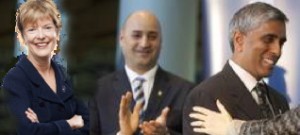15 October 2015
Dear Colleagues:
The Honourable Lynn Smith, Q. C., completed her fact-finding process last week and presented the parties with her report. We thank Professor Smith for her fair and impartial process and for producing a high quality, nuanced report, a public summary of which is available on our website (Please follow this link).
The key finding of the Smith Report is that the University of British Columbia failed in its duty to support and protect Dr. Berdahl’s academic freedom and that it interfered with her academic freedom. The finding thus has two clear implications. First, the University itself actively impinged Dr. Berdahl’s academic freedom by the cumulative effects of various University actors’ behaviour. And, secondly, because the duty is a positive one, requiring affirmative and proactive support for academic freedom in situations such as Dr. Berdahl’s, the University’s silence in relation to the attack by others on Dr. Berdahl’s academic freedom was an additional failure.
More specifically, the conclusions to be drawn from the Report are as follows. The Report finds that the University acted without regard for the well-being and interests of Dr. Berdahl. Following her online posting of a blog, Dr. Berdahl became the target of attacks by email, by social media, and in columns appearing in the national press. At no time did any university official speak out in defense of her right to academic freedom or issue any other statement of support for her or scholarship. The Smith Report, consequently, concludes that, as a result of the combined acts and omissions of Mr. Montalbano and others, Dr. Berdahl “reasonably felt reprimanded, silenced and isolated.” The events initiated by the University following the publication of Dr. Berdahl’s blog post have had, the Report continues, a “significant negative impact” on Dr. Berdahl.
The main agents involved in the University’s response to the blog post were the Chair of the Board of Governors, Mr. John Montalbano, the Chancellor of the University, Mr. Lindsay Gordon, the Sauder Dean’s Office, as well as UBC staff and others advising the Board on how to handle the aftermath of President Gupta’s resignation. Senior academic leaders were conspicuously absent and silent.
While Dr. Berdahl received support from international scholars and experts in her field, and from faculty throughout UBC and other universities, we are troubled that neither the Administration nor the Board spoke fully and publicly in defense of Dr. Berdahl’s academic freedom. The silence with respect to Dr. Berdahl on this issue from these two central sites of university leadership is extraordinary. Senior administrators and board members bear responsibility for this failure.
These mistakes and missteps in the case of Dr. Berdahl have occurred under Mr. Montalbano’s leadership, often as a result of his direct personal involvement.
We await the responses from the Administration and the Board of Governors.
Sincerely,
Mark Mac Lean, President
On behalf of the UBC Faculty Association Executive Committee

 Follow
Follow